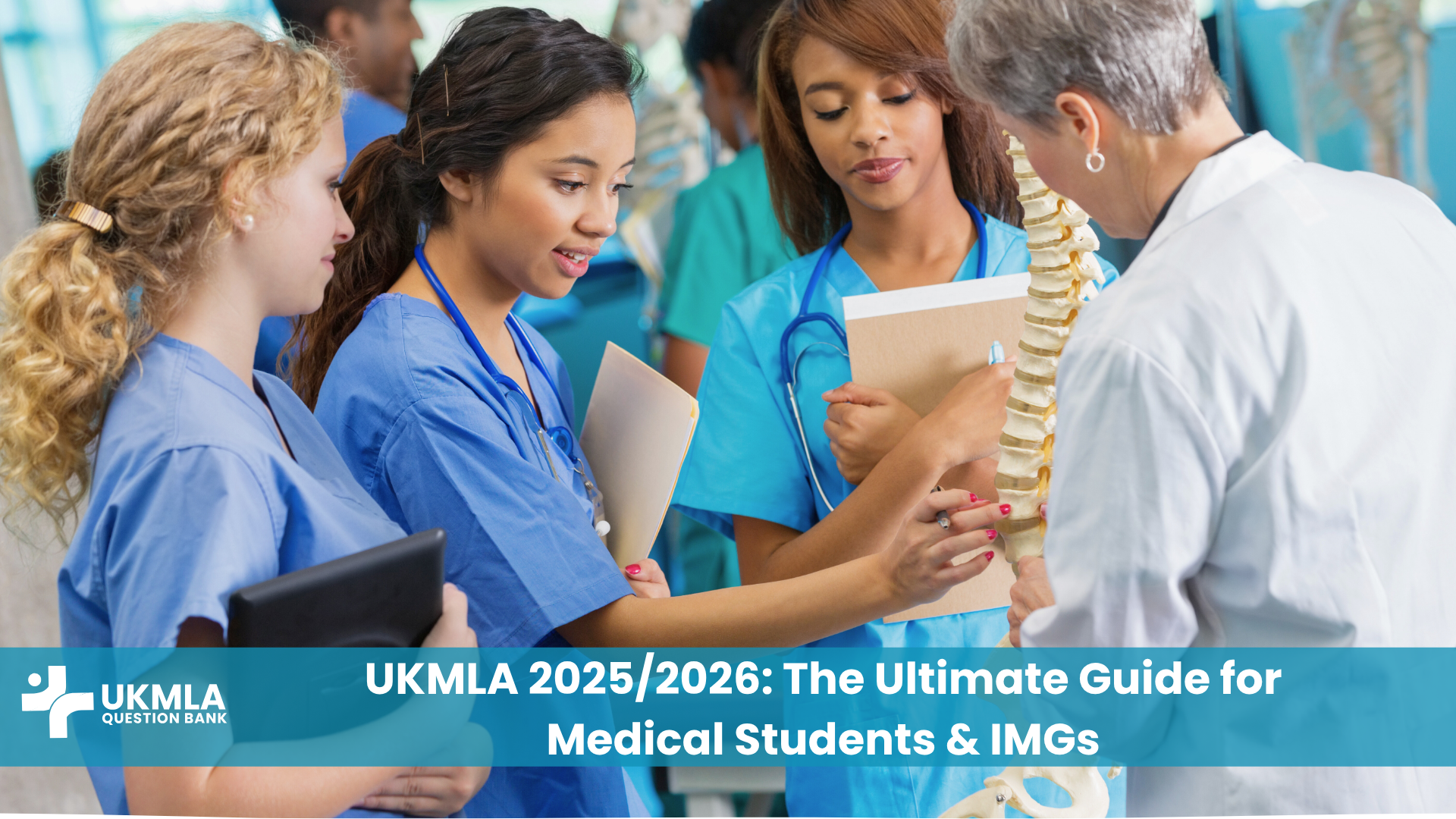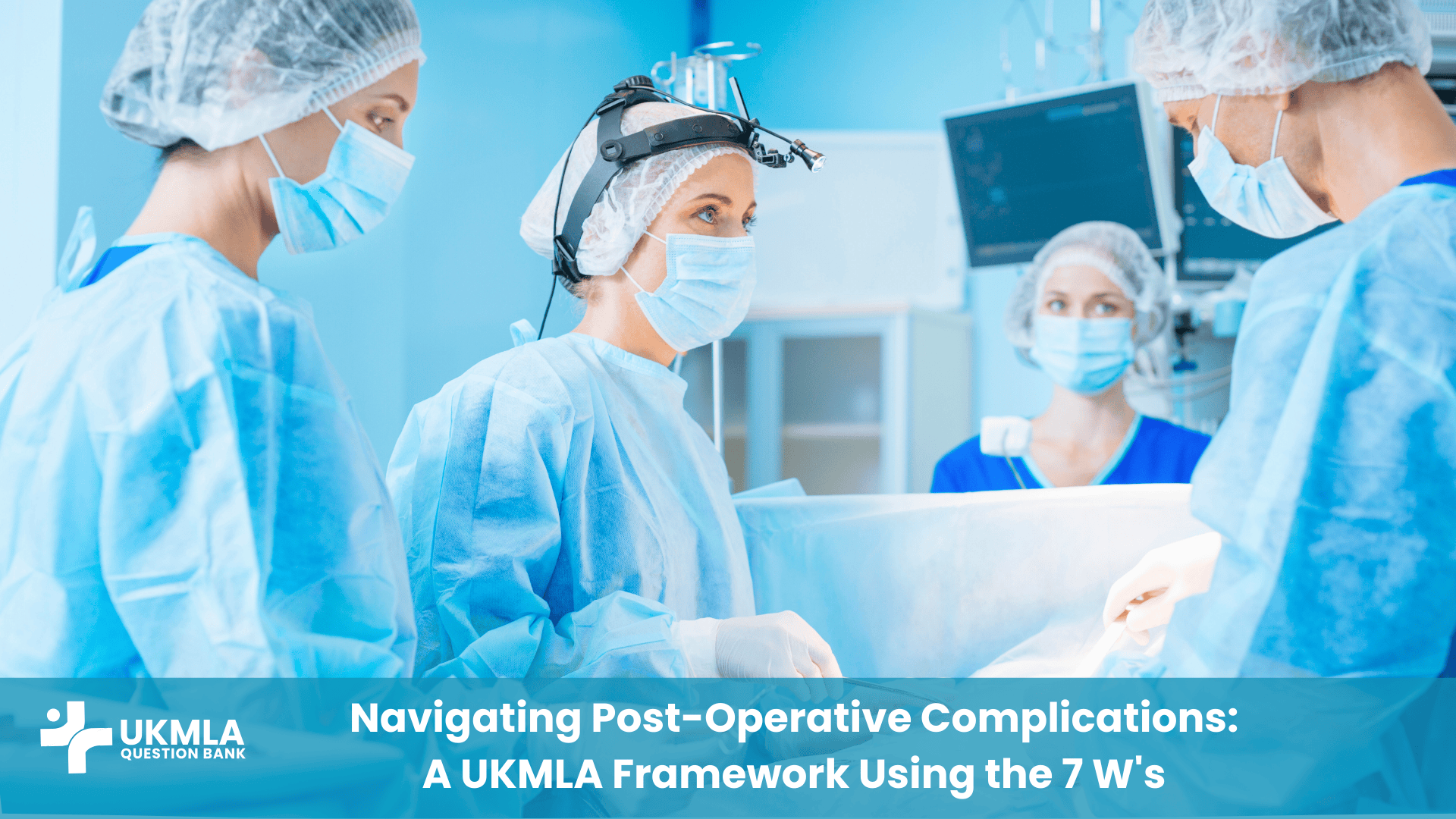The landscape of medical licensing in the United Kingdom is continuously evolving, and the UK Medical Licensing Assessment (UKMLA) stands at the forefront of this change. For medical students in the UK and International Medical Graduates (IMGs) eyeing a career within the NHS, understanding the intricacies of the UKMLA 2025/2026 is not just beneficial—it’s essential. This comprehensive guide is designed to be your ultimate resource, demystifying the exam, outlining pathways, and offering robust preparation strategies to help you navigate this crucial milestone with confidence.
Whether you’re a final-year UK medical student preparing for this integrated assessment or an IMG planning your journey to GMC registration, the UKMLA 2025/2026 framework aims to create a common threshold for safe medical practice. Let’s embark on this detailed exploration to ensure you’re fully equipped for success.
Understanding the UKMLA: The Foundation for UK Medical Practice
The UKMLA is a two-part assessment introduced by the General Medical Council (GMC) to ensure that all doctors licensed to practise in the UK meet a consistent standard of knowledge and skills. It’s a pivotal step towards ensuring patient safety and maintaining the high quality of care expected within the National Health Service (NHS).
What Does the UKMLA Replace?
For UK Medical Students: The UKMLA is integrated into the final year of medical school. Universities are responsible for delivering the Clinical and Professional Skills Assessment (CPSA) component, and students will also sit the Applied Knowledge Test (AKT). Passing the UKMLA will become a prerequisite for graduation for students starting their studies from 2024/25 onwards, meaning those graduating in UKMLA 2025/2026 cycles will be fully under this system.
For International Medical Graduates (IMGs): The UKMLA replaces the Professional and Linguistic Assessments Board (PLAB) test. IMGs wishing to gain GMC registration will need to pass both parts of the UKMLA. The content and standards are designed to be equivalent, ensuring a level playing field.
Purpose and Aims of the UKMLA
The GMC’s primary objective with the UKMLA is to:
Establish a Common Standard: Create a single, recognized standard for all doctors entering UK practice, irrespective of whether they trained in the UK or internationally.
Enhance Patient Safety: Ensure that newly qualified doctors possess the core knowledge, skills, and professional behaviours required for safe and effective patient care from day one.
Maintain Public Confidence: Uphold public trust in the medical profession by standardizing the entry requirements for practice.
Key Timelines for UKMLA 2025/2026
While specific dates are announced by the GMC and medical schools, candidates preparing for the UKMLA 2025/2026 cycle should anticipate:
UK Students: The AKT is often taken in the penultimate or final year, with the CPSA typically in the final year. Your medical school will provide precise timelines.
IMGs: The AKT can be taken at various international locations multiple times a year. The CPSA is conducted in the UK. Booking windows and exam dates are regularly updated on the GMC website. It’s crucial to monitor these closely as you plan your UKMLA 2025/2026 attempt.
UKMLA Components In-Depth: AKT and CPSA
The UKMLA 2025/2026 is comprised of two distinct but equally important parts: the Applied Knowledge Test (AKT) and the Clinical and Professional Skills Assessment (CPSA).
1. Applied Knowledge Test (AKT)
The AKT is designed to evaluate your ability to apply medical knowledge to various clinical scenarios.
Format: It’s a computer-based, multiple-choice exam.
Content Areas: The AKT covers a broad range of topics outlined in the MLA Content Map. This map details three main domains:
Areas of Clinical Practice (e.g., medicine, surgery, pediatrics, mental health)
Areas of Professional Knowledge (e.g., ethics, law, patient safety)
Clinical and Professional Capabilities (e.g., communication, leadership)
Question Style: Primarily Single Best Answer (SBA) questions. You’ll be presented with a clinical scenario followed by a question and typically five answer options, from which you must select the single most appropriate response.
Number of Questions & Duration: The AKT usually consists of two papers, each containing around 100-150 questions, taken on the same day or consecutive days. Each paper typically lasts 2-3 hours. (Specifics for UKMLA 2025/2026 will be confirmed by the GMC/medical schools).
2. Clinical and Professional Skills Assessment (CPSA)
The CPSA assesses your practical clinical skills, communication abilities, and professionalism in simulated healthcare settings.
Format: It’s an Objective Structured Clinical Examination (OSCE)-style assessment. You will rotate through a series of timed “stations.”
Skills Assessed:
Clinical Skills: History taking, physical examination, practical procedures, data interpretation, and clinical reasoning.
Communication Skills: Interacting with simulated patients (actors), colleagues, explaining diagnoses, discussing management plans, breaking bad news, and obtaining consent.
Professionalism: Demonstrating ethical conduct, empathy, teamwork, and an understanding of patient safety.
Typical Station Types: Stations can vary widely, from taking a focused history for a common complaint to performing a cardiovascular examination, interpreting an ECG, or counseling a patient on lifestyle changes.
For UK Students: Medical schools will deliver and assess the CPSA according to GMC standards.
For IMGs: The CPSA will be conducted by the GMC in the UK, similar to the previous PLAB 2 format.
The UKMLA 2025/2026 Journey for UK Medical Students
For students enrolled in UK medical schools, the UKMLA 2025/2026 is an integral part of your degree.
Integration into Medical School Curriculum
Your medical school curriculum is designed to equip you with the knowledge and skills necessary to pass both components of the UKMLA. Teaching methods, clinical placements, and formative assessments throughout your course will align with the MLA Content Map.
When is it Typically Taken?
AKT: Many schools schedule the AKT towards the end of the penultimate year or early in the final year.
CPSA: This is usually conducted in the final year, often as part of your final OSCE examinations.
Impact on Graduation and Foundation Programme Application
Passing both the AKT and CPSA will be a requirement for graduation from your UK medical degree. Furthermore, demonstrating that you have met this national standard is crucial for your application to the UK Foundation Programme (UKFP), which is the two-year training program most UK graduates undertake after medical school.
Specific Preparation Tips for UK Students
Engage Fully with Your Curriculum: Your medical school is your primary resource. Actively participate in lectures, tutorials, problem-based learning, and clinical skills sessions.
Maximize Clinical Placements: Real-world patient interaction is invaluable. Practice history taking, examinations, and communication under supervision.
Utilize Medical School Resources: Many universities provide access to question banks, mock OSCEs, and specific UKMLA preparation materials.
Understand the MLA Content Map Early: Familiarize yourself with the scope of knowledge and skills expected.
Form Study Groups: Collaborating with peers can enhance understanding and provide opportunities for OSCE practice.
The UKMLA 2025/2026 Journey for International Medical Graduates (IMGs)
For IMGs, the UKMLA 2025/2026 is your gateway to practicing medicine in the UK.
Eligibility Criteria
To be eligible to sit the UKMLA as an IMG, you generally need:
An Acceptable Primary Medical Qualification: Your medical degree must be from an institution recognized by the GMC. You can check this on the GMC website.
English Language Proficiency: You must demonstrate competence in English, typically by passing an approved English language test (like IELTS or OET) to the required GMC standard.
The Transition from PLAB to UKMLA
If you’re familiar with the PLAB test, the UKMLA structure will feel similar. The AKT mirrors PLAB 1, and the CPSA mirrors PLAB 2. The key difference is the UKMLA’s aim to be a universal standard for all doctors, including UK graduates. The content and difficulty level are expected to be consistent.
Application Process for IMGs
Create a GMC Online Account: This is your starting point for applications.
Verify Your Medical Qualification: The GMC will need to verify your primary medical qualification.
Demonstrate English Language Proficiency: Submit your English language test results.
Book the AKT: Once eligible, you can book the AKT through your GMC Online account.
Pass the AKT: You must pass the AKT before you can book the CPSA.
Book and Pass the CPSA: The CPSA is taken in the UK.
Key Differences in Approach for IMGs
Familiarity with NHS and UK Guidelines: IMGs need to make a concerted effort to understand the structure of the NHS, UK-specific clinical guidelines (e.g., NICE guidelines), ethical frameworks, and cultural nuances relevant to UK medical practice.
Independent Study: While UK students have integrated curricula, IMGs often rely more on self-directed study and commercial preparation resources.
Specific Preparation Tips for IMGs for UKMLA 2025/2026
Thoroughly Study the MLA Content Map: This is your blueprint for what to study.
Invest in High-Quality Question Banks and Mock Exams: Choose resources specifically tailored to the UKMLA or recent PLAB standards.
Focus on UK Clinical Guidelines: Familiarize yourself with NICE and other relevant UK guidelines.
Practice Communication Skills: The CPSA heavily emphasizes communication. Practice with peers, ideally those familiar with UK OSCE formats. Consider courses that offer mock CPSA stations.
Gain UK Clinical Experience (if possible): Clinical attachments or observerships in the NHS can be invaluable for understanding the system and practicing skills, though not always easy to obtain.
Understand UK Medical Ethics and Law: These are crucial components of both AKT and CPSA.
Universal Preparation Strategies for UKMLA 2025/2026 Success
Regardless of whether you are a UK student or an IMG, certain strategies are universally beneficial for tackling the UKMLA 2025/2026.
1. Master the MLA Content Map
This document, provided by the GMC, is the definitive guide to what can be assessed. Use it to structure your revision and ensure comprehensive coverage.
2. Utilize Question Banks Effectively
Practice Regularly: Consistent practice helps reinforce knowledge and familiarize you with question styles.
Analyze Explanations: Don’t just check if you got an answer right or wrong. Understand the reasoning behind the correct answer and why other options were incorrect. This is where deep learning occurs.
Identify Weaknesses: Use question bank performance to pinpoint areas needing more focused revision.
3. The Crucial Role of Mock Exams
Simulate Exam Conditions: Take full-length mock AKTs and participate in mock CPSA circuits under timed conditions.
Assess Readiness: Mock exams provide a realistic gauge of your preparation level.
Refine Exam Technique: Practice pacing, time management, and strategies for handling difficult questions or stations.
4. Develop a Realistic Study Plan
Start Early: Avoid last-minute cramming. Consistent, spaced revision is more effective.
Be Specific: Allocate time for different subjects and types of practice (e.g., question banks, mock exams, skills practice).
Be Flexible: Adjust your plan based on your progress and identified weak areas.
Schedule Breaks: Regular breaks are essential to prevent burnout and maintain focus.
5. Hone Your Time Management Skills
Both the AKT and CPSA are timed assessments. Practice answering questions and completing stations within the allocated time limits. Develop strategies for when to move on from a difficult question or station.
6. Choose Reputable Resources
Official GMC Materials: Always start with resources provided by the GMC.
Medical School Resources (for UK students): Leverage everything your university offers.
Established Providers: For question banks, mock exams, and courses, look for well-regarded providers with positive reviews and content aligned with the UKMLA blueprint.
7. Prioritize Wellbeing and Manage Stress
Preparing for a high-stakes exam like the UKMLA 2025/2026 can be stressful.
Maintain a Healthy Lifestyle: Ensure adequate sleep, nutrition, and physical activity.
Practice Mindfulness or Relaxation Techniques: These can help manage anxiety.
Seek Support: Talk to friends, family, mentors, or peers. Don’t hesitate to seek professional help if you’re feeling overwhelmed.
What Happens After Passing the UKMLA?
Successfully navigating the UKMLA 2025/2026 opens the door to the next stages of your medical career in the UK.
GMC Registration
Once you have passed both the AKT and CPSA (and met all other requirements, such as English language proficiency and identity checks for IMGs), you can apply for provisional registration with a licence to practise from the GMC. UK graduates typically receive provisional registration upon graduation after passing the UKMLA.
Applying to the UK Foundation Programme (UKFP) or Other Pathways
UK Graduates: Provisional GMC registration allows you to apply for and enter the UKFP, a two-year work-based training program that bridges the gap between medical school and specialty or general practice training.
IMGs: After gaining full GMC registration (often after a period of supervised practice or by demonstrating equivalence), IMGs can apply for various posts, including those within the UKFP (if eligible) or other non-training or training posts within the NHS.
Starting Work in the NHS
The UKMLA is your passport to contributing your skills to the National Health Service, one of the world’s largest and most respected healthcare systems.
Frequently Asked Questions (FAQs) for UKMLA 2025/2026
The GMC intends for the UKMLA to be of an equivalent standard to the PLAB test. The primary difference is that the UKMLA will be a universal standard for all doctors (UK graduates and IMGs), ensuring consistency. The perceived difficulty may vary individually, but the core knowledge and skills assessed are similar.
The GMC usually specifies a maximum number of attempts for each component (AKT and CPSA). It’s crucial to check the latest GMC guidance, as these policies can be updated. Previous attempts at PLAB 1 or PLAB 2 may count towards the total attempts for the corresponding UKMLA parts.
For UK students, preparation is integrated throughout your medical school curriculum, with focused revision intensifying in the year leading up to each component. For IMGs, it’s advisable to start dedicated preparation at least 6-12 months before your intended AKT date, depending on your existing knowledge base and commitments.
The official MLA Content Map from the GMC is paramount. Beyond that, high-quality question banks, mock exams (for both AKT and CPSA), and, for IMGs, resources that explain UK clinical guidelines and NHS practices are vital. UK students should also leverage all materials provided by their medical school.
Yes, the GMC typically offers the AKT at various international test centers. However, the CPSA must be taken in the UK.
Fees for the AKT and CPSA are set by the GMC for IMGs. For UK students, the cost is usually incorporated into their university fees. IMGs should check the GMC website for the most current fee structure for the UKMLA 2025/2026 cycle.
The pass marks for the AKT and CPSA are determined using established standard-setting methodologies. They are not a fixed percentage and can vary slightly between exam sittings to ensure fairness. The focus is on demonstrating a minimum level of competence.
While not a formal requirement for sitting the exam, having some form of UK clinical experience (e.g., observerships) can be highly beneficial for IMGs. It helps in understanding the NHS, UK clinical practice, communication styles, and ethical considerations, which are all relevant to the CPSA.
The AKT is typically held multiple times a year. The CPSA is also held frequently. The GMC website provides the schedule for IMG candidates. UK medical schools will have their own schedules for their students.
Generally, if your PLAB 1 pass is still valid according to GMC rules (usually within a 2-3 year window leading up to the UKMLA 2025/2026 transition), you may be exempt from the AKT and can proceed to the CPSA. Always verify your specific situation with the latest GMC guidance.
Conclusion: Your Path to UKMLA 2025/2026 Success
The UKMLA 2025/2026 represents a significant step in your medical journey, whether you are a UK-based student or an International Medical Graduate. While the preparation can seem daunting, a structured approach, diligent effort, and the right resources will pave the way for success. Remember that this assessment is designed to ensure you have the foundational knowledge and skills for safe and effective practice. Embrace the challenge, focus on comprehensive preparation, and look forward to the rewarding career that awaits you in UK medicine. With dedication and smart strategies, you can confidently meet the standards of the UKMLA 2025/2026 and embark on the next exciting chapter of your professional life.




